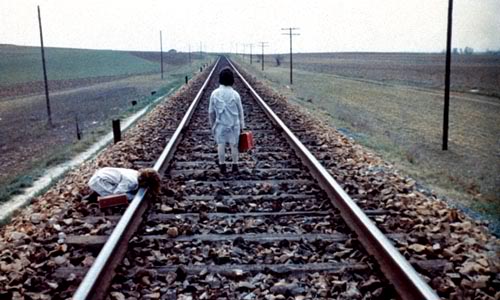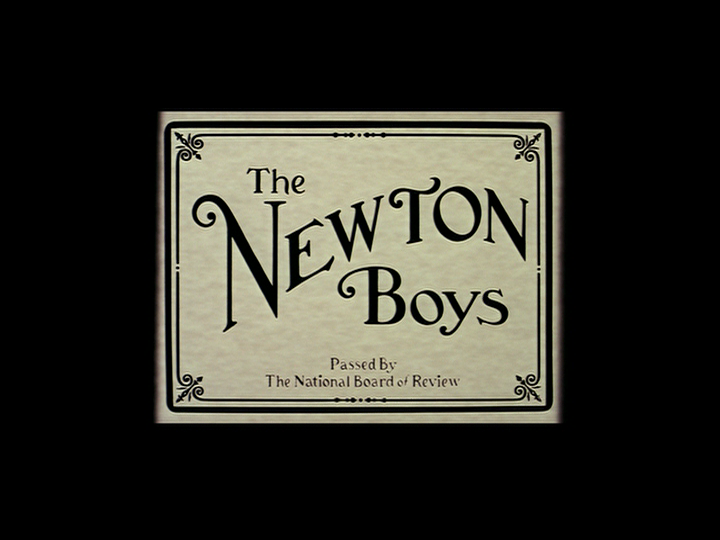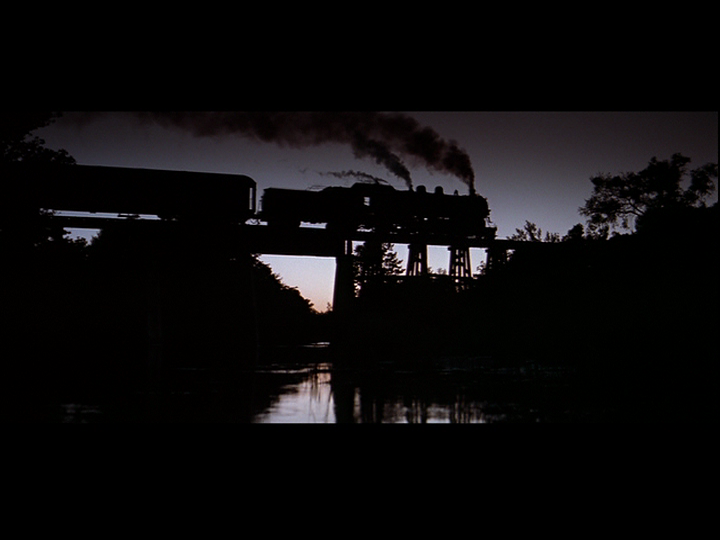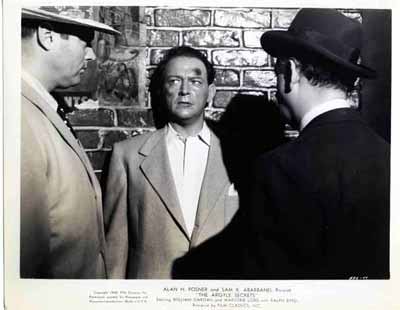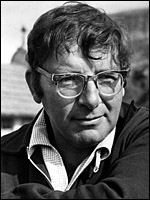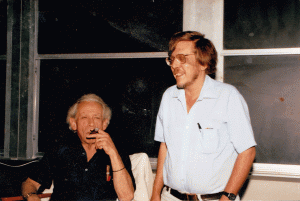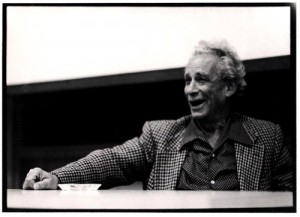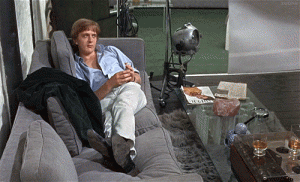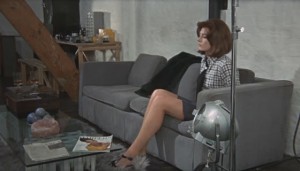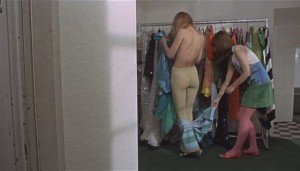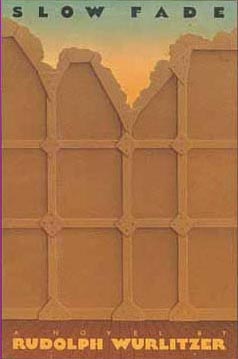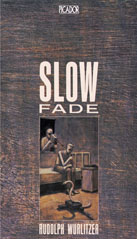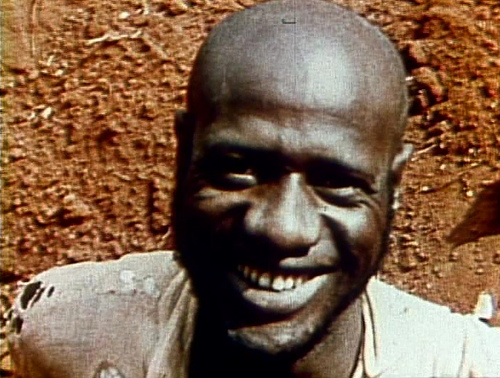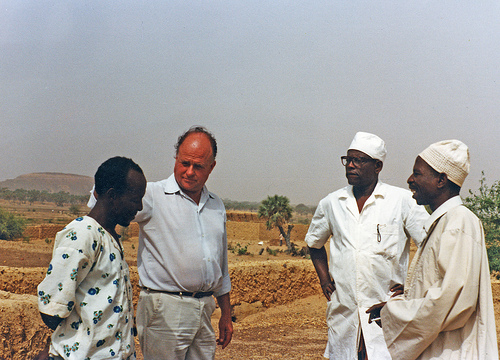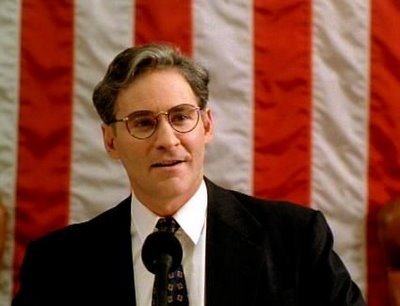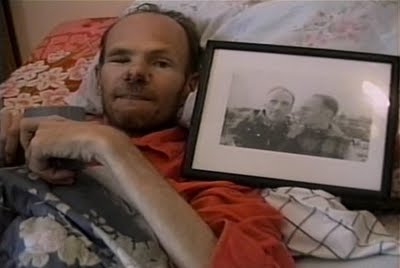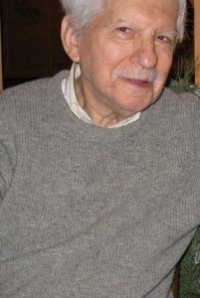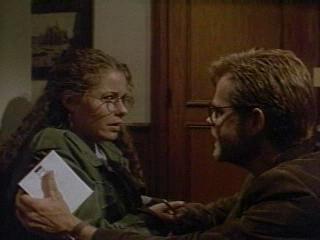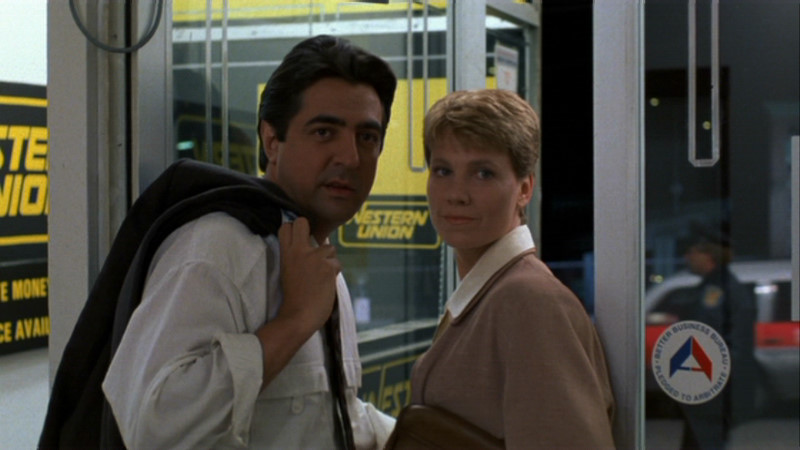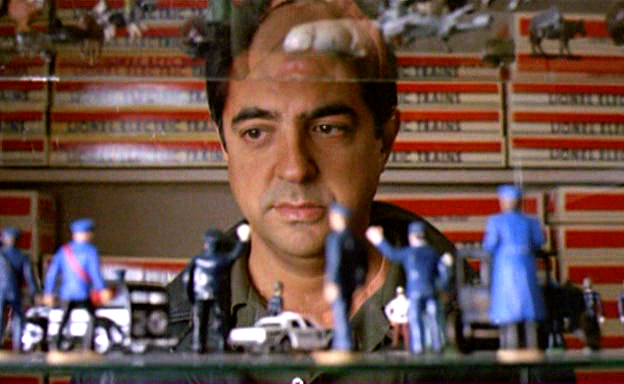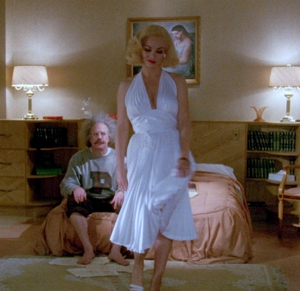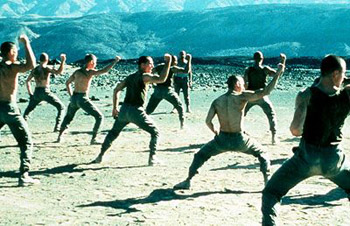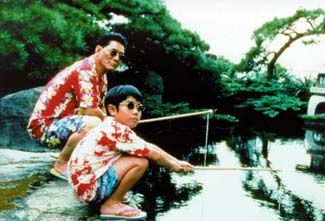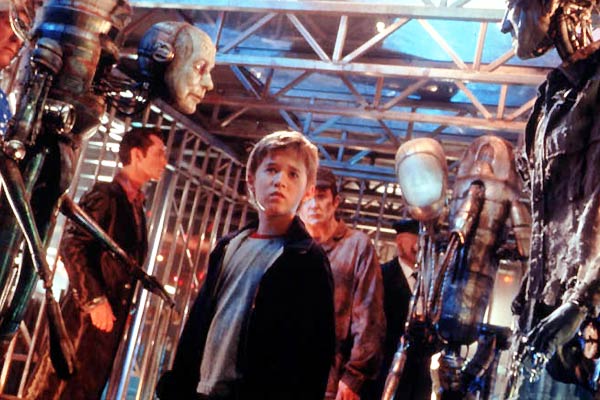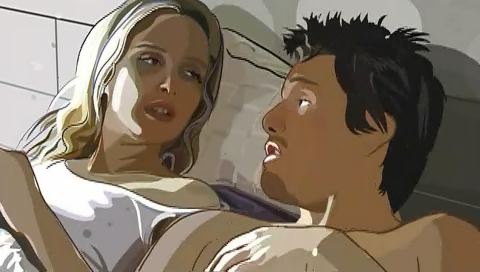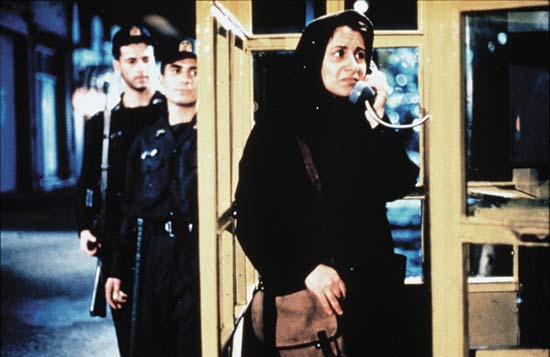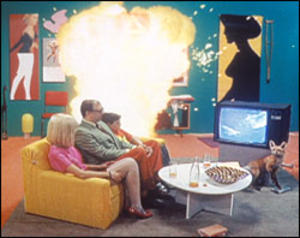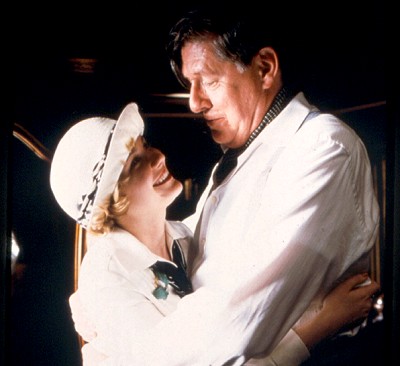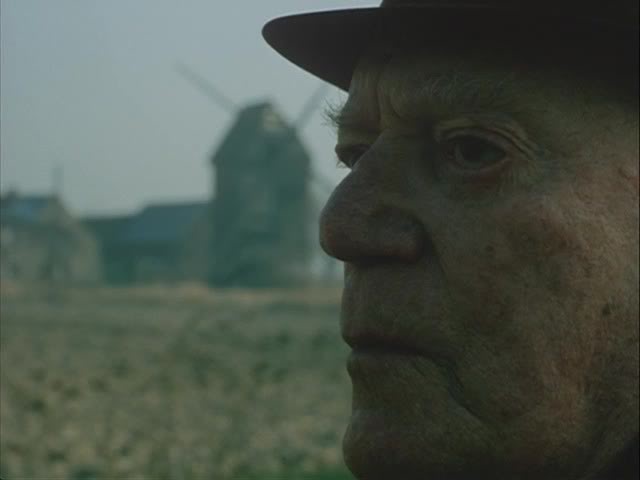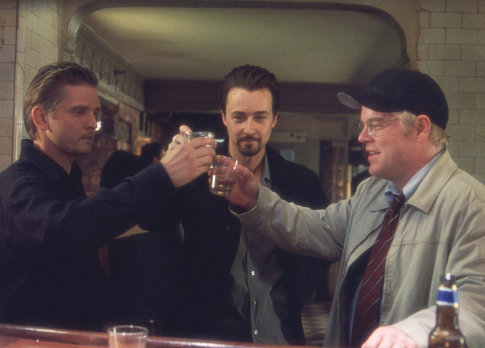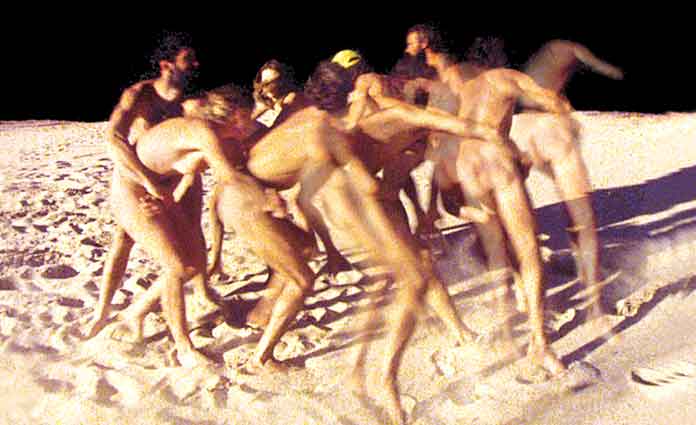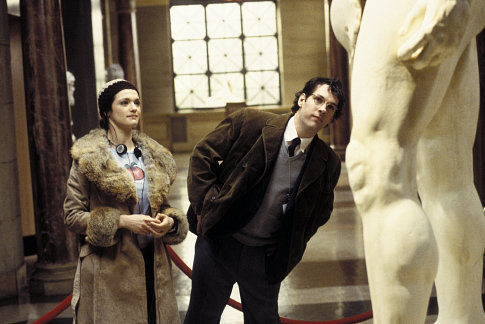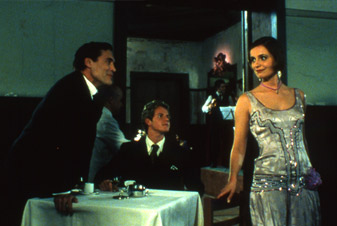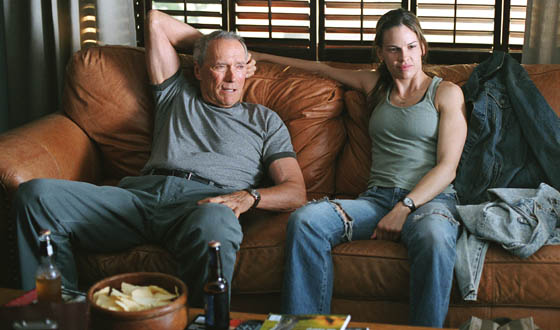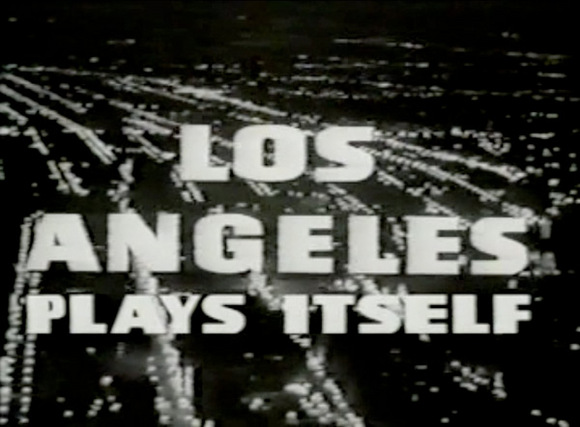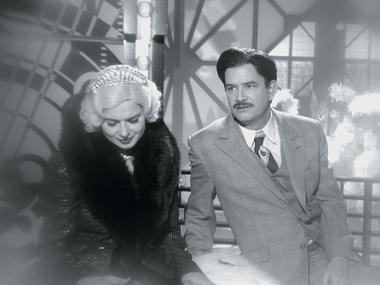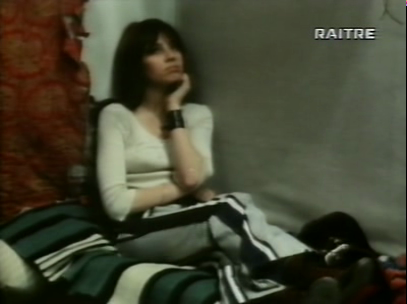From Film Comment (January-February 1975). (January 23, 2012 update: Thanks, once again, to the ever-vigilant Ehsan Khoshbakht for spotting a few typos here and thus enabling me to correct them.)– J.R.
October 8: Victor Erice’s EL ESPIRITU DE LA COLMENA (THE SPIRIT OF THE BEEHIVE). I’ve been trying all weekend to come up with an adequate description of this lovely Spanish film, but I can’t get anywhere. A colleague recently spoke of the film as “beguiling,” which seems like an honest start. Two remarkably expressive little girls, Ana Torrent and Isabel Telleria, see James Whale’s FRANKENSTEIN at a traveling film show that stops in their village in Castille. Afterwards, Isabel explains to her sister that the monster is still alive — and indeed, he makes a brief appearance in the final reel. The girls’ father is a bee-keeper who broods over Maeterlinck, while the mother writes unexplained letters to someone in France. Isabel plays dead for a bit, and Ana believes her. Ana befriends a fugitive soldier who is eventually killed.
I don’t know what sense to make of either the plot or Erice’s beautiful honey-tone colors and honeycomb compositions, but I find the film haunting and rather spellbinding in a muted way, and emotionally it all seems to add up to something. Read more

